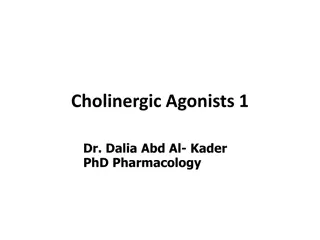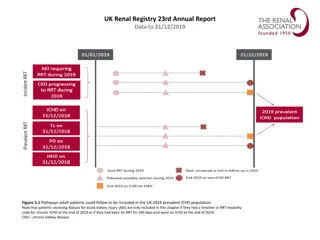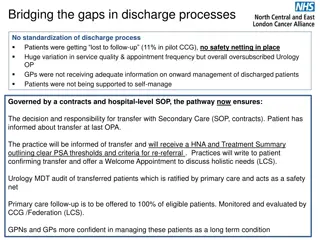
Abiraterone Acetate Essential Information for Patients
Abiraterone acetate is a medication primarily prescribed to treat prostate cancer. It works by blocking the production of testosterone, a hormone that fuels the growth of prostate cancer cells. This medication is usually used in combination with other treatments. It's important to follow your doctor's instructions carefully when taking abiraterone acetate to ensure optimal effectiveness and minimize side effects.n
Uploaded on | 4 Views
Download Presentation

Please find below an Image/Link to download the presentation.
The content on the website is provided AS IS for your information and personal use only. It may not be sold, licensed, or shared on other websites without obtaining consent from the author. If you encounter any issues during the download, it is possible that the publisher has removed the file from their server.
You are allowed to download the files provided on this website for personal or commercial use, subject to the condition that they are used lawfully. All files are the property of their respective owners.
The content on the website is provided AS IS for your information and personal use only. It may not be sold, licensed, or shared on other websites without obtaining consent from the author.
E N D
Presentation Transcript
Abiraterone Acetate: Essential Information for Patients Introduction to Abiraterone Acetate Abiraterone acetate is a powerful medication used in the treatment of metastatic castration-resistant prostate cancer (mCRPC). It is commonly known under brand names such as Zytiga and is a crucial option for patients battling advanced stages of prostate cancer.
How Abiraterone Acetate Works Mechanism of Action Abiraterone acetate functions by inhibiting the enzyme CYP17A1, which is essential in the production of androgens. Androgens are hormones that can fuel the growth of prostate cancer cells. By blocking this enzyme, abiraterone acetate reduces androgen levels, thereby slowing the growth of cancer cells. Clinical Benefits Clinical trials have shown that abiraterone acetate can significantly improve overall survival and delay the progression of prostate cancer in patients with mCRPC. It also helps in alleviating symptoms, enhancing patients' quality of life. Dosage and Administration Recommended Dosage The standard dosage of abiraterone acetate is 1,000 mg per day, taken as four 250 mg tablets. It is vital to take the medication on an empty stomach, either one hour before or two hours after a meal, to ensure proper absorption. Importance of Adherence Patients must adhere strictly to the prescribed regimen. Consistent daily intake at the same time each day is crucial for achieving optimal treatment outcomes and minimizing the risk of adverse effects. Potential Side Effects Common Side Effects Patients taking abiraterone acetate may experience side effects such as: Hypertension Hypokalemia (low potassium levels) Liver function abnormalities Regular monitoring by healthcare providers is essential to manage these side effects effectively.
Serious Side Effects In some cases, more severe side effects may occur, including: Cardiovascular issues Adrenal insufficiency Severe liver toxicity Prompt reporting of any unusual symptoms to a healthcare provider is crucial for timely management. Managing Side Effects Regular Monitoring Regular blood tests and check-ups are necessary to monitor the patient s response to abiraterone acetate and manage any adverse effects promptly. This helps in adjusting treatment as needed to ensure safety and effectiveness. Lifestyle Adjustments Adopting healthy lifestyle habits can help manage side effects. This includes maintaining a balanced diet, staying hydrated, engaging in regular physical activity, and ensuring adequate rest. Conclusion Abiraterone acetate is a critical medication in the fight against metastatic castration- resistant prostate cancer. Its ability to extend survival and improve the quality of life makes it a vital treatment option for many patients. By adhering to the prescribed regimen, monitoring for side effects, and maintaining close communication with healthcare providers, patients can maximize the benefits of abiraterone acetate and manage their condition effectively.






















